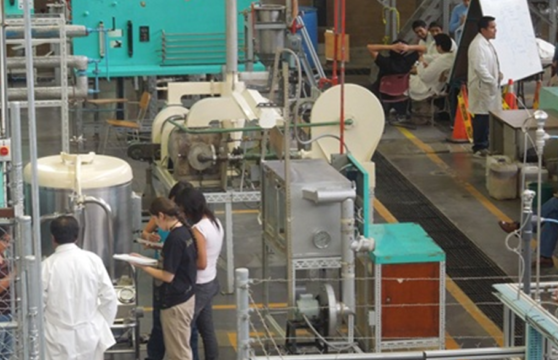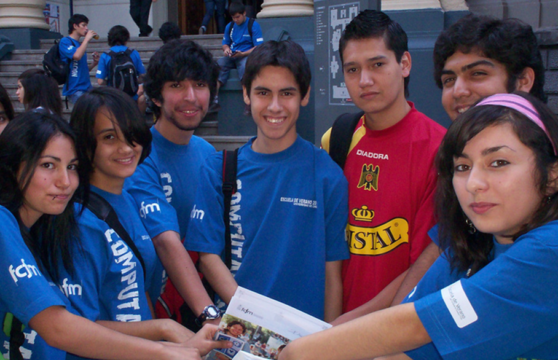
Human Capital and the Latin American Growth Puzzle
What is long run growth linked to and what does this mean for Latin American Countries?
This post is also available in: Spanish
How to increase productivity and competitiveness in a complex and changing environment? The new report of the Organization of Ibero-American States for Education, Science and Culture (OEI), “Higher Education, Productivity and Competitiveness in Ibero-America,” seeks to answer this question and offer some recommendations to resolve the existing gaps. We had the opportunity to talk with Mariano Jabonero, Secretary General of the OEI, about the new report and its implications for the Ibero-American region.
Despite significant growth in higher education participation rates in Ibero-America, productivity indicators in the region remain stagnant. To what can we attribute this situation? What are the most important factors to consider?
Beyond the challenges in competitiveness and productivity that Ibero-America faces, we must consider that the global labor market is in a process of continuous transformation due to several mega-trends. In this sense, to increase productivity and competitiveness, Ibero-America needs to complement investment in human capital with greater efforts in areas of innovation, research, and development.
As identified in the recent report of the OEI’s Ibero-American Institute for Education and Productivity, “Higher Education, Competitiveness and Productivity in Ibero-America,” one of the problems related to low productivity in Ibero-America is the high level of informality in the labor market, which in many countries covers around 50 percent of employees. This implies that if, through public policies, some of the informal employment could be transferred to the formal sector, there would be significant gains in aggregate productivity.
In this regard, one of the key factors for increasing competitiveness and productivity in the region should focus on finding the balance between adoption and development of technology and investment in human capital, through quality education and more pertinent technical and higher education training.
A major challenge mentioned in the report is the gap between supply and demand in certain university degrees. For example, in several Ibero-American countries, almost a third of university graduates have studied business administration and law, while less than five percent of students receive diplomas in the field of Information and Communication Technologies (ICTs). What role do universities and/or companies have in addressing this imbalance? How can the careers of the future be made more attractive?
Improving student’s skills and adapting them to the labor market is clearly in the strategic interest of universities, since this will allow the creation of capabilities that increase the productivity of people, especially taking into account the current technology and existing equipment and machinery.
To respond to the challenges posed by the gaps between supply and demand for skills, the incorporation of competencies in line with the new work environment must occur at all educational stages, including higher education. For positive results, this development should be a two-way process, since companies will also be able to inform universities of labor market demands, producing feedback, and contributing to the constant change of programs.
Various teaching models can help to meet the challenges of the future:
As we are advocating from the OEI, all of these recommendations consider higher education as a key public policy to improve productivity, rather than purely an academic issue.
We are all living through historic times with the Covid-19 pandemic and the economic and educational impacts it has produced, which will surely continue even after the immediate health crisis is resolved. At the same time, it seems that there is a real opportunity for us not to return to the “normal” of before. What opportunities exist to rethink higher education and productivity in Ibero-America? What sectors or skills are even more essential in this new reality?
The impact of Covid-19 is a clear example of a phenomenon that will involve a reinvention process for many workers, and the workers who have a greater ability to move from the hardest-hit sectors to new activities will be the ones who can make the most effective transition across the labor market. This situation highlights the benefits of possessing cross-cutting skills that are reusable and not limited to a particular profession.
In this sense, the pandemic presents a massive challenge, which is why there must be a commitment to an increase in quality education, complemented by greater public-private collaborations to create the conditions for increased productivity and competitiveness, and by taking advantage of new technologies.
Various research studies, such as the one presented by the OEI Institute, show that Ibero-America is not adequately prepared for the digital revolution because it lacks professionals with advanced digital knowledge and skills. This once again highlights the importance of cross-cutting skills, which unlike disciplinary knowledge, are not specifically related to a job, a task, a sector, an occupation, or an academic discipline, but can be used in different situations and work scenarios.
It will probably be very difficult to solve the productivity problem without addressing the issue of inequality, both in higher education participation rates and in the jobs graduates obtain and the salaries they earn. What can be done not only to close the gap in access to higher education but also to guarantee relevant education and the acquisition of cross-cutting skills for students, especially those from vulnerable sectors?
Despite the fact that higher education indicators in the region have shown a positive trend, the focus should be placed on the relevance of study programs and the ability of institutions to respond to the challenges of skill training required by the labor market. As I already mentioned, to increase productivity and competitiveness, Ibero-America needs to complement investment in human capital with greater efforts in the areas of innovation, research, and development.
The gap between the supply and demand of skills requires greater coordination between universities and companies, but the public sector also plays a fundamental role since it can provide incentives, information, and resources to facilitate this coordination. Because of this, it becomes essential to add skills in line with the demands of the labor market and work environments at all stages of education, including higher education.
A key recommendation of the report is to strengthen the communication between tertiary education institutions, governments, and the private sector for “the alignment of objectives and the design, implementation and evaluation of higher education policy” (p. 51). Some encouraging examples of this type of coordination are provided, such as Chile’s Council of Mining Competencies. Why have these initiatives been successful and not others? Are there certain contextual characteristics that facilitate collaboration? What lessons can be drawn from these experiences?
Multilateral and national institutions in the region are increasingly aware of the challenge that aligning skills represents. Because of this, they have promoted initiatives that delve into research on professional skill sets and the labor market. These organizations are devoting resources exclusively to studying and generating proposals on this topic.
Created in 2012 as an initiative of the Chilean Mining Council, the Mining Skills Council of Chile is a specialized group that aims to “as an industry, provide information, both in qualitative and quantitative terms, that allows the training offered to technicians and professionals to be adapted to the demands of the mining labor market”. Specifically, the Mining Skills Council of Chile carried out a sector-wide approach through a model of cross-cutting skills for the mining industry 4.0, with the participation of companies across the country. The main mining companies, trade associations, state institutions, and suppliers have collaborated in this process, an important aspect to take into account when seeking greater replicability of this kind of initiatives in the future.
Higher Education, Productivity and Competitiveness in Ibero-America
Dual Education in Latin America: Challenges and Opportunities
Covid-19 in the Americas: The Dialogue’s Coronavirus Updates
What is long run growth linked to and what does this mean for Latin American Countries?
Latin America leads the world in talent shortages, and that the problem is getting worse
An analysis of global trends and their impact on education policies in Chile.

